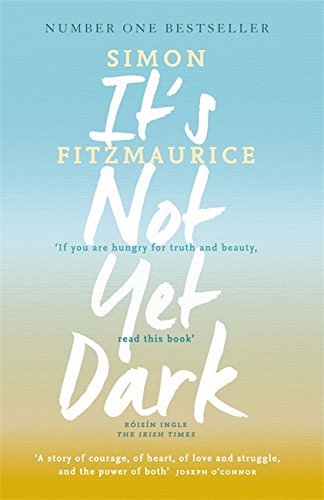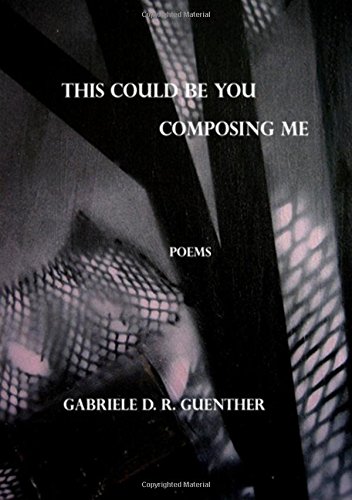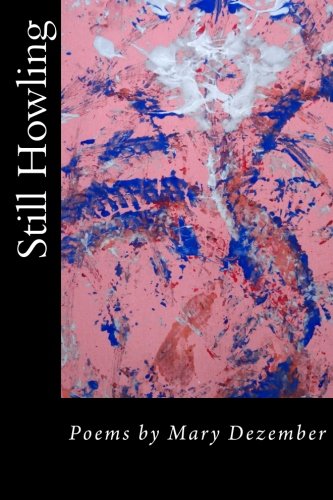 Lucky Or Not, Here I Come is the debut novel of Gerry Orz, written when he was just fifteen years old. Immediately the reader can see that Orz is a storyteller who keeps his audience engaged and involved. These attributes also translate well into his ventures in filmmaking.
Lucky Or Not, Here I Come is the debut novel of Gerry Orz, written when he was just fifteen years old. Immediately the reader can see that Orz is a storyteller who keeps his audience engaged and involved. These attributes also translate well into his ventures in filmmaking.
19 search results for "karen corinne herceg"
An interview with Alan Alda
 Alan Alda is an award-winning actor known for his portrayal of the iconic character Hawkeye Pierce on the popular television series M.A.S.H., and as host of the PBS series “Scientific American Frontiers,” as well as his many movie and Broadway roles. In this revealing interview, Alan focuses mostly on his new book If I Understood You, Would I Have This Look on My Face? but also explores the writing process, his reading habits, communication as a whole, the relationship between writing scripts, acting, and writing nonfiction, and much more.
Alan Alda is an award-winning actor known for his portrayal of the iconic character Hawkeye Pierce on the popular television series M.A.S.H., and as host of the PBS series “Scientific American Frontiers,” as well as his many movie and Broadway roles. In this revealing interview, Alan focuses mostly on his new book If I Understood You, Would I Have This Look on My Face? but also explores the writing process, his reading habits, communication as a whole, the relationship between writing scripts, acting, and writing nonfiction, and much more.
The Sum of Our Parts: A review of It’s Not Yet Dark by Simon Fitzmaurice
 Fitzmaurice wrote with the sensibility of a filmmaker. He blends past recollections, present conditions and future possibilities in a moving kaleidoscope of connectivity regarding one’s influences, hopes and realities that seems always to be present instead of distant and reflective.
Fitzmaurice wrote with the sensibility of a filmmaker. He blends past recollections, present conditions and future possibilities in a moving kaleidoscope of connectivity regarding one’s influences, hopes and realities that seems always to be present instead of distant and reflective.
Veracity and Transformation: A Review of Grief Cottage by Gail Godwin
 The book is wonderfully informed by multiple metaphorical depictions of our inner and outer struggles. Young Marcus loses his mother, his only parent, and goes to live with his eccentric and spiritually bruised great Aunt Charlotte on a small island in South Carolina at the beginning of the summer. Aunt Charlotte has past wounds that haunt her, rendering her a reclusive but renowned local painter.
The book is wonderfully informed by multiple metaphorical depictions of our inner and outer struggles. Young Marcus loses his mother, his only parent, and goes to live with his eccentric and spiritually bruised great Aunt Charlotte on a small island in South Carolina at the beginning of the summer. Aunt Charlotte has past wounds that haunt her, rendering her a reclusive but renowned local painter.
Common Denominators: A review of If I Understood You, Would I Have This Look on my Face by Alan Alda
 The title to his newest and third book, If I Understood You, Would I Have This Look on My Face? and its subtitle, “My Adventures in the Art and Science of Relating and Communicating” reflects an intellectual sensibility conveyed clearly and directly. It underscores the very points he is trying to make in this book. Alda has a gift for speaking about lofty ideas in layman’s terms, and his fervor for his subject matter shines through. This passion is at the heart of what engages us.
The title to his newest and third book, If I Understood You, Would I Have This Look on My Face? and its subtitle, “My Adventures in the Art and Science of Relating and Communicating” reflects an intellectual sensibility conveyed clearly and directly. It underscores the very points he is trying to make in this book. Alda has a gift for speaking about lofty ideas in layman’s terms, and his fervor for his subject matter shines through. This passion is at the heart of what engages us.
Essential Eviscerations: A review of This Could Be You Composing Me by Gabriele D.R. Guenther
 There is a stark, necessary brutality to these poems, and so many wonderful, poignant lines that one is tempted to quote continuously in an effort to impress upon readers the importance of this work. Therefore the best recommendation is to read it whole, in its entirety, to absorb its authentic reflections and stunning phrases and to reap the rewards of personal insight and possibly even enlightenment.
There is a stark, necessary brutality to these poems, and so many wonderful, poignant lines that one is tempted to quote continuously in an effort to impress upon readers the importance of this work. Therefore the best recommendation is to read it whole, in its entirety, to absorb its authentic reflections and stunning phrases and to reap the rewards of personal insight and possibly even enlightenment.
A Howl of Disenchantment: A review of Still Howling by Mary Dezember
 For those who saw beneath the veneer of our country’s prosperity, “Howl” was the response of those supposedly mad or insane, observing the interior disintegration of a society enamored of materialism, steeped in religious doctrine but becoming increasing devoid of spiritual direction, still segregated and racist and generally intolerant of sexual honesty. “Howl” helped define a generation that saw beyond America’s inflated sense of progress and supremacy.
For those who saw beneath the veneer of our country’s prosperity, “Howl” was the response of those supposedly mad or insane, observing the interior disintegration of a society enamored of materialism, steeped in religious doctrine but becoming increasing devoid of spiritual direction, still segregated and racist and generally intolerant of sexual honesty. “Howl” helped define a generation that saw beyond America’s inflated sense of progress and supremacy.
Inheritance and Reclamation: A review of Miriam’s Book: A Poem by Harold Schweizer
 It is rare when we can call a poetry book a “page turner” in the sense of a drama or mystery, but in his remarkable new work, Miriam’s Book: A Poem, Harold Schweizer accomplishes just that. The connective tissue of each chapter, organized as in a novel, propels us forward with anticipation and curiosity.
It is rare when we can call a poetry book a “page turner” in the sense of a drama or mystery, but in his remarkable new work, Miriam’s Book: A Poem, Harold Schweizer accomplishes just that. The connective tissue of each chapter, organized as in a novel, propels us forward with anticipation and curiosity.
A review of To The Dogs by Roberta Gould
 Roberta Gould knows the minutiae of discrepancies and how we interrupt our own joy with preconceived notions, imagined grudges, misplaced assertions. In “Best Friend,” the title tells us how she feels about her dog, yet she hesitates to share a piece of her food. Finally relinquishing it and, realizing the irony of the conflict, she states, “I do it grudgingly/confusing myself with the truly hungry.” In this simple gesture she questions the meaning of generosity and our perceptions of need and greed.
Roberta Gould knows the minutiae of discrepancies and how we interrupt our own joy with preconceived notions, imagined grudges, misplaced assertions. In “Best Friend,” the title tells us how she feels about her dog, yet she hesitates to share a piece of her food. Finally relinquishing it and, realizing the irony of the conflict, she states, “I do it grudgingly/confusing myself with the truly hungry.” In this simple gesture she questions the meaning of generosity and our perceptions of need and greed.